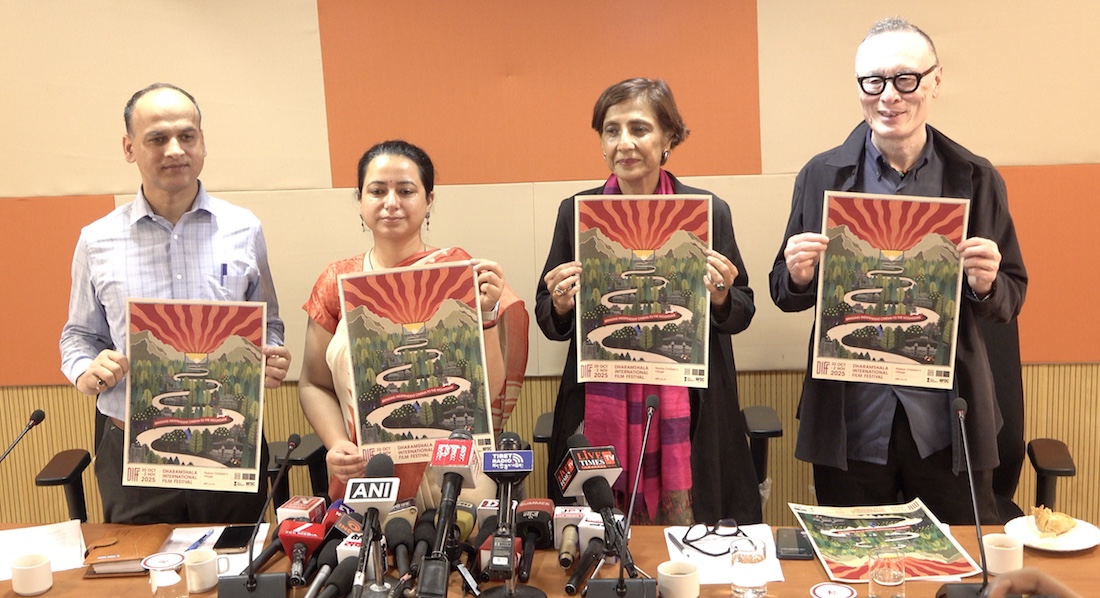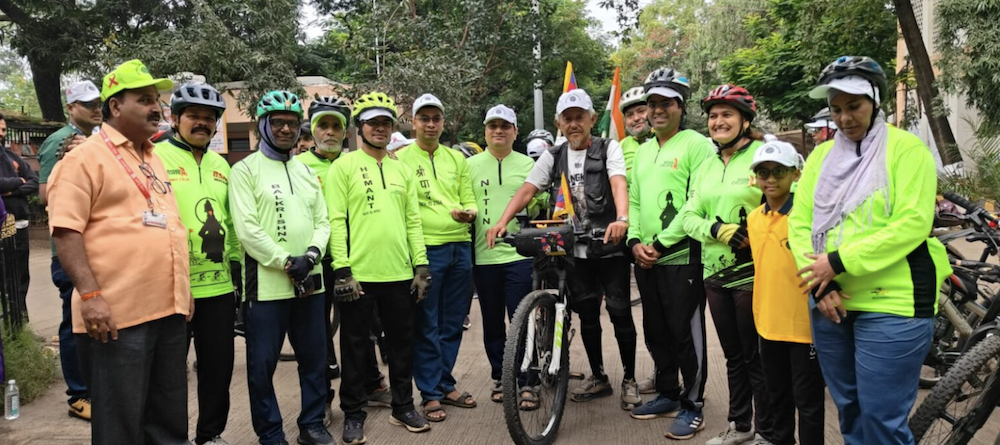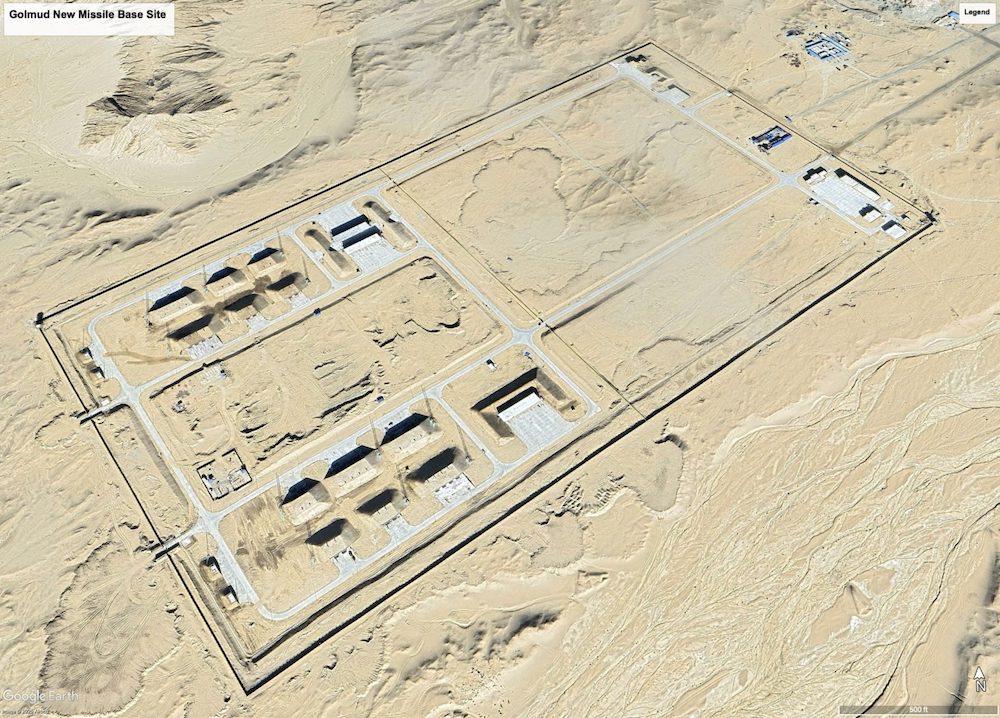By P. P. Wangchuk
New Delhi – Tai Situ Rinpoche, the 48-year-old Tibetan spiritual teacher of Gyalwa Karmapa, makes you reconsider the way you look at your life and the world around you. Apart from being a Buddhist scholar, the 12th Tai Situ Rinpoche – his real name is Pema Donyo Nyinje Wangpo – is a poet, calligrapher, architect and artist. The author of several books on the doctrines of Buddhism, he spoke at length on the role of religion, particularly Buddhism, and on living a more meaningful and purposeful life. And in the process, gave a whole new perspective on many familiar doctrines. Karma and Dharma Karma and dharma are the two tools that can be best used to change destructive minds and create a positive environment around us. “Use your mind and sense in a positive and meaningful way, not only to protect your own interests but of others as well,” he says. “Because, as Albert Camus had said, ‘You become what you think’. The Buddha too had this in mind when he said: ‘What you think comes to the fore of your consciousness and become dynamic forces in your life.”
A meaningful and happy life cannot be had by “passive activism”. For instance, there is no point in showing the other cheek. “It could lead to more destructive activities on the part of the attacker because he is emboldened by your passive reception. One should do all that can be done to save one’s own self as well as to stop the attacker. But it should be done in such a way that you harbour no hatred for him, and try to put him on the right track so that he never even thinks of doing so in future,” says the Ripoche.
That is one of Buddhism’s basic tenets on how to create happiness. Of course, there are several other things like compassion, sincerity, positive thinking etc, which are keys to happy living. But happy living cannot be achieved in isolation. Buddhism says nothing in the world is complete in itself. It is interdependent, and hence, to be happy, you must create happiness around you.
Attaining nirvana
Religious discourses are aimed at paving the way for a better world that is peopled with minds with positive thoughts. Discourses, says the Rinpoche, help individuals to discover their inner innate goodness. “If prince Siddhartha could attain Buddhahood, why cannot you and me?” he asks. The innate essence is the same in all human beings, said the Buddha time and again in his teachings in the Sutras. It is how you handle it – keep it buried or discover it and make full use of it.
The most important aspect of Buddhism, says the Rinpoche, is that anyone can attain Buddhahood, the absolute attainment of human potential. He regrets that most of today’s scholars have distorted picture of Buddhism. “They are far removed from the original or the real principles of Buddhism. Some people are trying to make Buddhism a new-age religion, making Buddha out to be a radical God of the Hindus.” This, he says, is either because of ignorance or because of “misuse” of religion. The weakness of Buddhism, for that matter any other religion, is that it is highly prone to be exploited for reasons other than spiritual progress and for the good of humanity.
There are no experts
The Rinpoche says nobody can claim to be an expert on a particular subject. “I have found scientists who don’t know anything about their claims, forget about their understanding of religions. Until you attain Buddhahood (enlightenment), you cannot claim to be a know-all even in your own area of expertise. Buddhism says that everything is interdependent and, therefore, the study of a particular subject means study of a tiny fraction of a big whole. So, how can one claim that one knows his field? Only a Buddha or an enlightened soul can make this claim. Scientists can be complete men only after attaining nirvana!” he says.
Tai Situpa in perspective
The Rinpoche, who is the 12th incarnate of Tai Situ, was born in 1954 in eastern Tibet to a family of farmers. He was enthroned at the age of 18 months. But it was in 19 75, when he was 22, that he assumed his traditional responsibilities and established his seat in India known as Sherab Ling at Baijnath in Himachal Pradesh. He was mainly responsible for finding the incarnation of the Gyalwa Karmapa.
Essentially a firm believer in the essence of human goodness, he keeps himself busy throughout the year in discourses and yatras for peace. He lead the “Active Peace” mission around the world in 1989 to promote global harmony.









